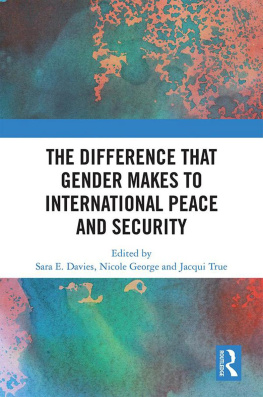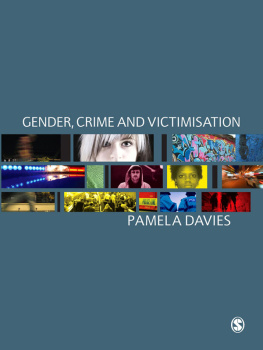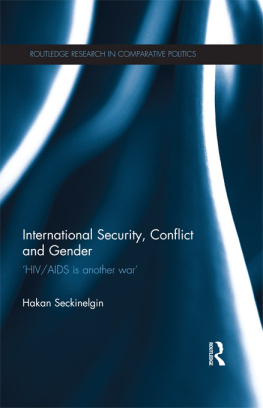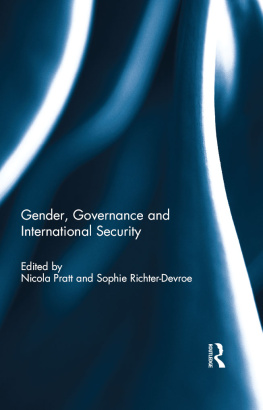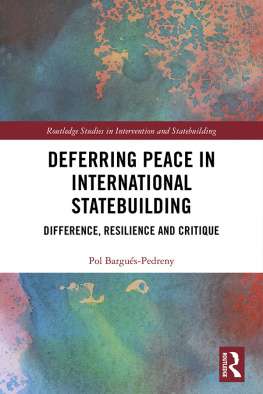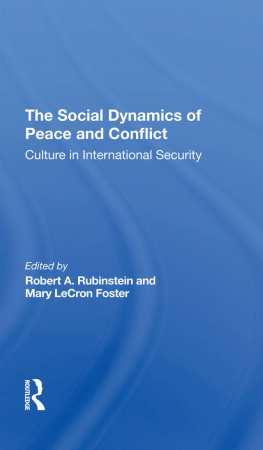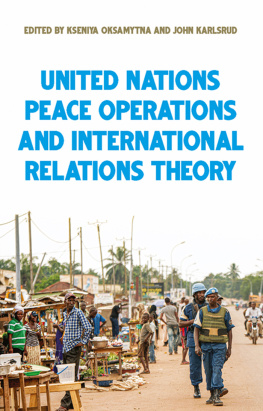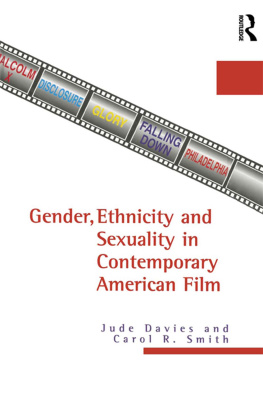The Difference that Gender Makes to International Peace and Security
Fifteen years after the adoption of the United Nations Security Council Resolution 1325, which establishes the Women, Peace and Security agenda, there is now a need to assess the impacts of gender equality efforts and to understand why and how gender equality reforms have advanced to the extent that they have. This book examines how international peace and security is re-envisioned from a gender perspective by mostly focusing on the nuances presented by the Asia Pacific region. It argues that despite the diversity of political, sociocultural and economic systems in the Asia Pacific, women and girls in the region continue to experience similar forms of insecurities. Several countries in the Asia Pacific have demonstrated relative peace and stability. In addition, womens leadership and participation in peacebuilding are and continue to be increasingly recognised in the region too. However, as the chapters in this book demonstrate, applying a critical gender analysis allows for the interrogation of veneers of political order which can then mask or normalise everyday gendered insecurities. The analysis of country cases such as Myanmar, Cambodia and Fiji underscores a rethinking of the political order in the Asia Pacific which leaves existing gender inequalities intact.
The chapters in this book were originally published in a special issue of the International Feminist Journal of Politics.
Sara E. Davies is Associate Professor at the Centre for Governance and Public Policy and Griffith Asia Institute, School of Government and International Relations, Griffith University, Nathan, Australia and an Australian Research Council (ARC) Future Fellow.
Nicole George is Senior Lecturer in the School of Political Science and International Studies at the University of Queensland, St Lucia, Australia. Nicoles research focuses on the gendered politics of conflict and peacebuilding, violence, security and participation, broadly conceived.
Jacqui True is Director of the Gender, Peace and Security Centre, Professor of Politics and International Relations and an ARC Future Fellow at Monash University, Melbourne, Australia. She is a specialist in Gender and International Relations. Her research is focused on understanding the political economy of post-conflict violence against women and the patterns of systemic sexual and gender-based violence in Asia Pacific conflict-affected countries.
The Difference that Gender Makes to International Peace and Security
Edited by
Sara E. Davies, Nicole George and Jacqui True
First published 2019
by Routledge
2 Park Square, Milton Park, Abingdon, Oxon, OX14 4RN, UK
and by Routledge
711 Third Avenue, New York, NY 10017, USA
Routledge is an imprint of the Taylor & Francis Group, an informa business
2019 Taylor & Francis
All rights reserved. No part of this book may be reprinted or reproduced or utilised in any form or by any electronic, mechanical, or other means, now known or hereafter invented, including photocopying and recording, or in any information storage or retrieval system, without permission in writing from the publishers.
Trademark notice: Product or corporate names may be trademarks or registered trademarks, and are used only for identification and explanation without intent to infringe.
British Library Cataloguing-in-Publication Data
A catalogue record for this book is available from the British Library
ISBN13: 978-1-138-60761-3
Typeset in Myriad Pro
by codeMantra
Publishers Note
The publisher accepts responsibility for any inconsistencies that may have arisen during the conversion of this book from journal articles to book chapters, namely the possible inclusion of journal terminology.
Disclaimer
Every effort has been made to contact copyright holders for their permission to reprint material in this book. The publishers would be grateful to hear from any copyright holder who is not here acknowledged and will undertake to rectify any errors or omissions in future editions of this book.
Contents
Sara E. Davies, Nicole George and Jacqui True
Sara E. Davies and Jacqui True
Emma Palmer and Sarah Williams
Maria Tanyag
Nicole George
Maria Jansson
Oasis Kodila-Tedika and Simplice A. Asongu
Sarah Hewitt
Sara E. Davies
The chapters in this book were originally published in the International Feminist Journal of Politics, volume 19, issue 1 (March 2017). When citing this material, please use the original page numbering for each article, as follows:
The difference that gender makes to international peace and security
Sara E. Davies, Nicole George and Jacqui True
International Feminist Journal of Politics, volume 19, issue 1 (March 2017) pp. 13
The politics of counting and reporting conflict-related sexual and gender-based violence: the case of Myanmar
Sara E. Davies and Jacqui True
International Feminist Journal of Politics, volume 19, issue 1 (March 2017) pp. 421
A shift in attitude? Institutional change and sexual and gender-based crimes at the Extraordinary Chambers in the Courts of Cambodia
Emma Palmer and Sarah Williams
International Feminist Journal of Politics, volume 19, issue 1 (March 2017) pp. 2238
Invisible labor, invisible bodies: how the global political economy affects reproductive freedom in the Philippines
Maria Tanyag
International Feminist Journal of Politics, volume 19, issue 1 (March 2017) pp. 3954
Policing conjugal order: gender, hybridity and vernacular security in Fiji
Nicole George
International Feminist Journal of Politics, volume 19, issue 1 (March 2017) pp. 5570
The logic of protection: narratives of HIV/AIDS in the UN Security Council
Maria Jansson
International Feminist Journal of Politics, volume 19, issue 1 (March 2017) pp. 7185
Women in power and power of women: the Liberian experience
Oasis Kodila-Tedika and Simplice A. Asongu
International Feminist Journal of Politics, volume 19, issue 1 (March 2017) pp. 86101
Gender, peace and security in the Australian Defence Force: Sarah Hewitt in conversation with Captain Jennifer Wittwer, CSM, RAN
Sarah Hewitt
International Feminist Journal of Politics, volume 19, issue 1 (March 2017) pp. 104111

